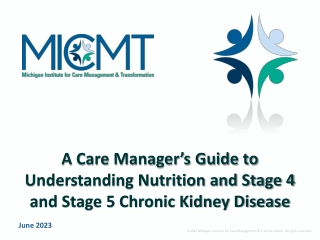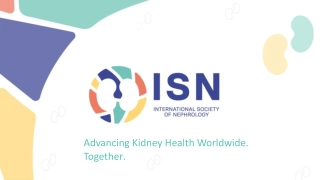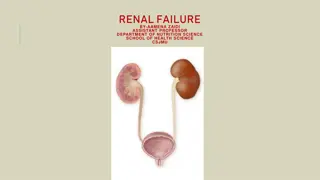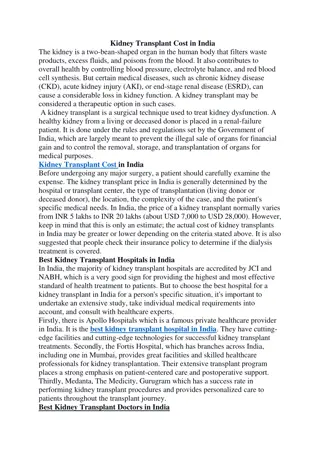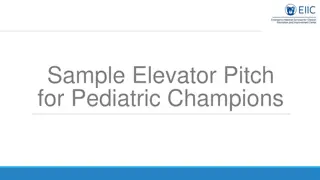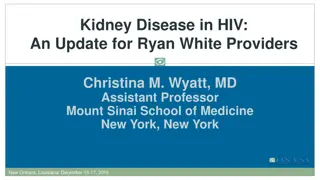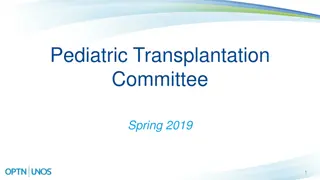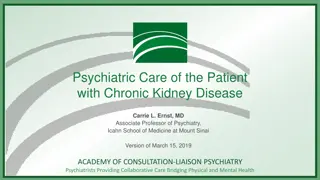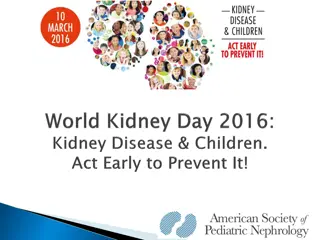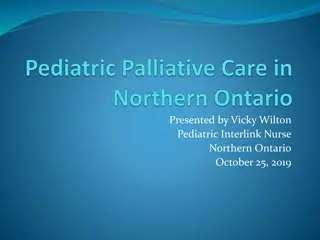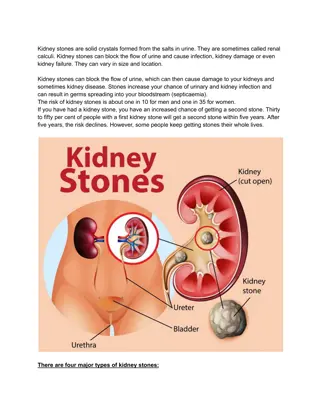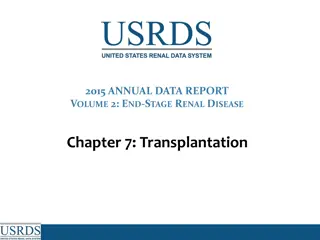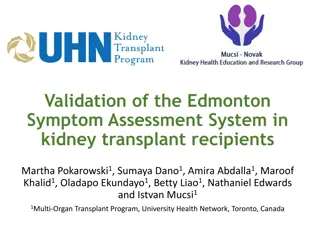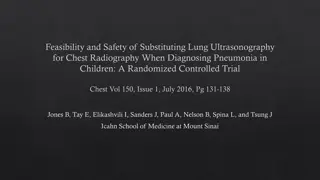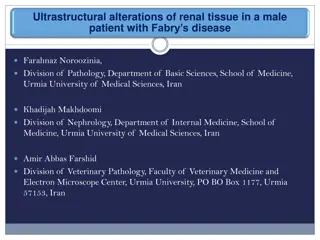Understanding Pediatric Kidney Disease: Education, Detection, and Treatment
Kidney disease in children is a critical global concern, with early detection and healthy lifestyle being key to combating preventable kidney disorders. Initiatives like the CKiD study aim to improve understanding and treatment of chronic kidney disease in pediatric patients, emphasizing the importance of addressing issues like hypertension and neurocognitive function.
Download Presentation

Please find below an Image/Link to download the presentation.
The content on the website is provided AS IS for your information and personal use only. It may not be sold, licensed, or shared on other websites without obtaining consent from the author. Download presentation by click this link. If you encounter any issues during the download, it is possible that the publisher has removed the file from their server.
E N D
Presentation Transcript
Kidney disease affects millions of people worldwide, including many children who may be at risk at an early age. It is therefore crucial that we encourage and facilitate education, early detection and a healthy life style in children, to fight the increase of preventable kidney diseases and to treat children with inborn and acquired disorders of the kidneys worldwide.
Hiren Patel, MD Nationwide Children s Hospital, Ohio State University College of Medicine
Current CKD staging (> 2 y/o): 5 year mortality of 11% in children developing ESRD Report) 5 year mortality of 11% in children developing ESRD (USRDS 2015 Annual GFR = glomerular filtration rate (mL/min/1.73m2) Estimated by revised (2009) Schwartz formula: 0.413 x Ht (cm) creatinine
100% Congenital structural disorders 49% Mutations in PAX2 and HNF1B genes account for about 10% of hypodysplasia Glomerular disorders Genetic kidney disease Acquired kidney disease Other Unknown 80% 16% 10% 6% 16% 3% 60% 40% 20% 0% < 2 Age at Diagnosis (years) 2 - 5 6 - 12 > 12 Age at Diagnosis (years) NAPRTCS 2008 Annual Report Structural Glomerular Other
Chronic Kidney Disease in Children (CKiD) study NIH-sponsored prospective cohort study Started enrollment in 2005 57 participating centers 891 patients enrolled 63 publications by the end of 2015 Top areas of publication: Cardiovascular disease in pediatric CKD GFR measurement CKD progression Neurocognitive function in pediatric CKD
Masked HTN is common (38%) in pediatric CKD and is associated with LVH BP is often undertreated Overall p = 0.003 Overall p = 0.003 LVH, % LVH, % Mitsnefes, et al. JASN 2010
Children with CKD are at increased risk for scoring low (< 1 SD) in neurocognitive measures (IQ, academic achievement, attention and executive function) Lower GFR and longer CKD duration associated with lower scores Growth in pediatric CKD remains suboptimal Low birth weight and small for gestational age are independent risk factors Greater use of growth hormone and controlling acidosis may offer highest yield in improvement
BP treatment More aggressive goal (<50th percentile) may slow CKD progression ESCAPE trial Large (n = 385) RCT in children with CKD comparing strict (<50th %) vs standard (<90th %) BP goal Wuhl et al. NEJM 2009
BP treatment with ACE inhibitors may decrease prevalence of LVH Matteucci et al. CJASN 2013
Proteinuria Important risk factor in CKD progression For both glomerular and non-glomerular disease Agents to reduce proteinuria ACE inhibitors (ACEI) Angiotensin receptor blockers (ARBs) Avoid combination therapy with ACEI + ARBs Mineralocorticoid antagonists Warady et al. AJKD 2015
Other risk factors for CKD progression which may lead to new therapeutic targets Metabolic acidosis Hyperuricemia Low vitamin D level Other agents being investigated e.g. pentoxifylline Slowed CKD progression in adults with diabetes and CKD stage 3-4 Rodenbach et al. AJKD 2015 Shroff et al. JASN 2016
Congenital structural disorders account for half of CKD in children Hypertension is under-recognized and under- treated in children with CKD CKD adversely affects growth and neuro-cognitive development
Your pediatric nephrology community continues to work hard to improve clinical care, foster education, and advance the science regarding kidney disease in children! We appreciate your support and all you do for children s health care! Your pediatric nephrology community continues to work hard to improve clinical care, foster education, and advance the science regarding kidney disease in children! We appreciate your support and all you do for children s health care!


